Top 10 Destination Places in Ivory Coast
Introduction
Côte d’Ivoire, or Ivory Coast, is a West African country known for its cultural richness, diverse landscapes, and vibrant cities. From stunning beaches and lush rainforests to historical landmarks and bustling urban centers, Ivory Coast offers a wide array of attractions for travelers. Here are the top 10 destinations you must visit to experience the best of what this fascinating country has to offer.
1. Abidjan
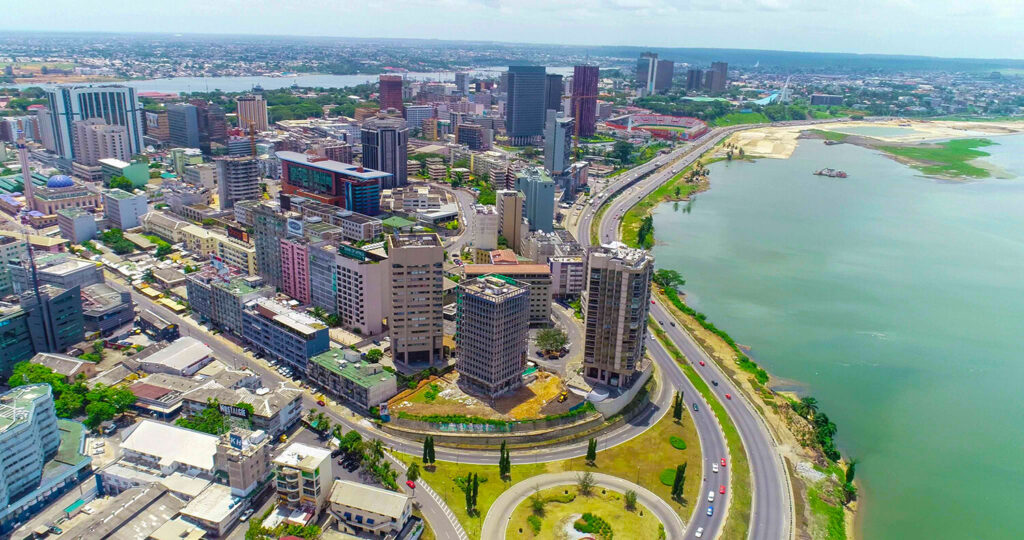
Abidjan is the economic and cultural hub of Ivory Coast, often referred to as the “Paris of West Africa” due to its cosmopolitan atmosphere and modern infrastructure.
Key Attractions:
- Plateau District: The business and administrative heart of Abidjan, characterized by its skyscrapers, bustling markets, and important landmarks like the Presidential Palace and the Cathedral of St. Paul, a striking modern structure designed by Italian architect Aldo Spirito.
- Banco National Park: A large urban park offering a rare green space within the city. It features tropical rainforest, walking trails, and a diverse range of wildlife, providing a serene escape from the urban hustle.
- Cocody and Deux Plateaux: Affluent neighborhoods known for their upscale residences, embassies, and the University of Cocody. These areas are also home to many expatriates and offer a variety of dining and entertainment options.
- Treichville: A vibrant district famous for its markets, cultural centers, and the Treichville Sports Palace. The area is a melting pot of cultures and provides a lively atmosphere with numerous shops, restaurants, and nightclubs.
Cultural Scene:
- Abidjan’s Music and Nightlife: The city is renowned for its vibrant music scene, particularly its contributions to genres like Coupé-Décalé and Zouglou. Numerous clubs, bars, and live music venues offer entertainment well into the night.
- Art and Museums: The Museum of Civilizations of Côte d’Ivoire showcases the country’s rich cultural heritage with exhibits on traditional art, crafts, and historical artifacts.
2. Yamoussoukro
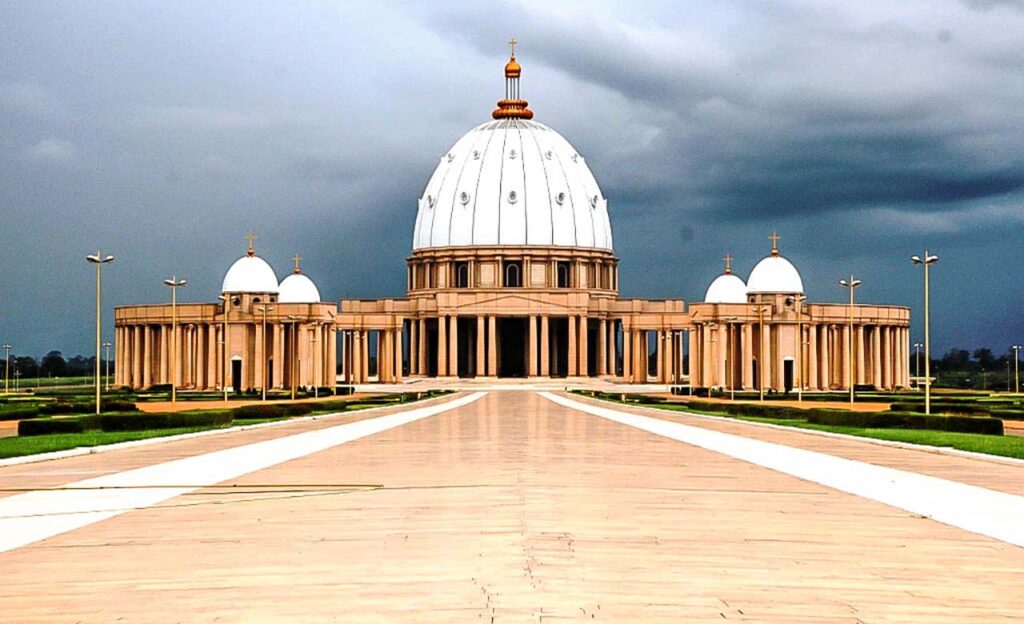
Yamoussoukro is the political capital of Ivory Coast, known for its grand architectural projects and tranquil atmosphere.
Key Attractions:
- Basilica of Our Lady of Peace: Modeled after St. Peter’s Basilica in Vatican City, this immense church is one of the largest in the world. Its vast dome, exquisite stained-glass windows, and serene gardens make it a must-visit landmark.
- Presidential Palace: A symbol of Ivorian political power, the palace is surrounded by an artificial lake inhabited by sacred crocodiles. Though the interior is not open to the public, the exterior and the crocodile feedings attract many visitors.
- Lake Kossou: One of the largest lakes in Ivory Coast, offering opportunities for fishing, boating, and bird-watching. The lake and its surrounding areas are also great for nature walks and picnics.
Cultural Highlights:
- Foundations of Félix Houphouët-Boigny: This institution commemorates the first President of Côte d’Ivoire, with exhibits detailing his life, political career, and contributions to the country’s development.
- Yamoussoukro’s Educational Institutions: The city hosts several important educational institutions, including the Lycée Scientifique and the Polytechnic Institute, which contribute to its intellectual atmosphere.
3. Grand-Bassam
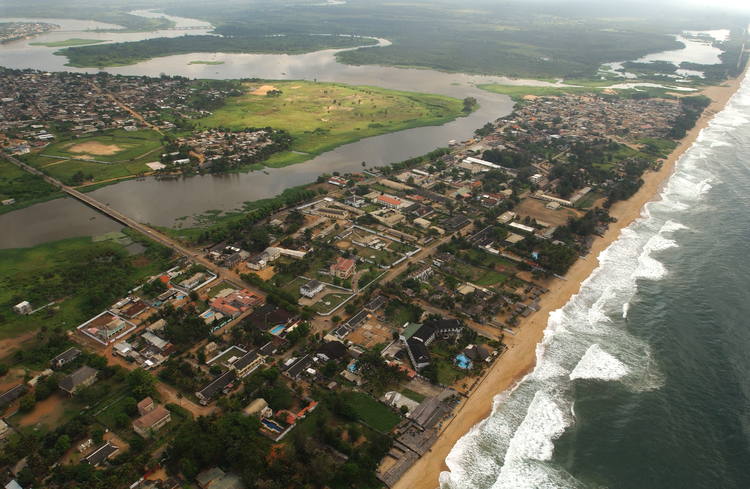
Grand-Bassam is a historic town that offers a glimpse into Ivory Coast’s colonial past, combined with beautiful beaches and vibrant local culture.
Key Attractions:
- Colonial Quarter: A UNESCO World Heritage site, this area is filled with colonial-era buildings that reflect the town’s history as a former French colonial capital. Key sites include the Governor’s Palace, which now houses the National Costume Museum, showcasing traditional Ivorian attire and artifacts.
- Ancien Bassam: The old town area where visitors can explore historic buildings, quaint streets, and the bustling market that sells everything from crafts to fresh produce.
- Beaches: Grand-Bassam is famous for its beautiful, palm-lined beaches, offering a perfect spot for relaxation and water activities. The beach resorts provide comfortable accommodations and various recreational facilities.
Cultural Scene:
- Craft Markets: Local artisans sell a variety of handmade goods, including wood carvings, textiles, and jewelry. The markets are a great place to purchase souvenirs and support local craftsmanship.
- Festivals and Events: Grand-Bassam hosts several cultural events throughout the year, including music festivals and traditional dance performances, which celebrate the town’s rich heritage and community spirit.
4. Tai National Park
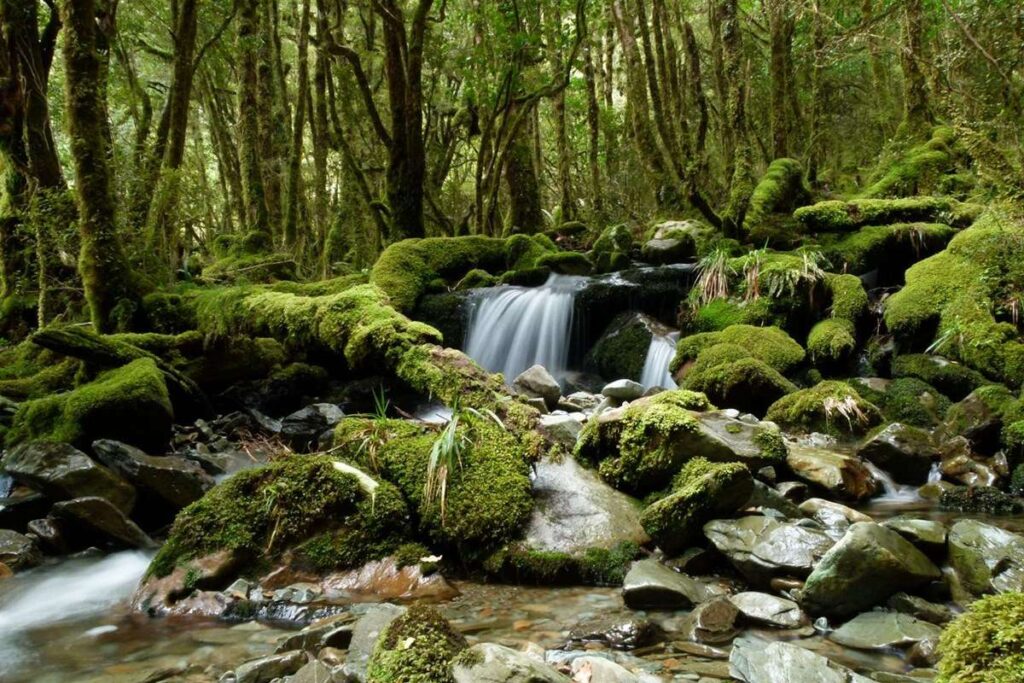
Tai National Park is one of West Africa’s last primary rainforests, offering a haven for wildlife and a unique opportunity for eco-tourism.
Key Attractions:
- Biodiversity: The park is home to a wide variety of wildlife, including endangered species such as the pygmy hippopotamus, chimpanzees, leopards, and numerous bird species. The dense forest canopy provides a rich habitat for flora and fauna, making it a hotspot for biodiversity.
- Guided Tours and Safaris: Visitors can embark on guided tours to explore the park’s trails and observe wildlife in their natural habitat. Night safaris offer a chance to see nocturnal animals and experience the forest’s unique nighttime ambiance.
- Research Stations: Tai National Park is a center for scientific research on tropical ecology and conservation. Visitors can learn about ongoing research projects and the efforts to protect and preserve this critical ecosystem.
Adventure Activities:
- Hiking and Trekking: The park offers various trails that cater to different fitness levels, from leisurely walks to challenging hikes. These trails provide opportunities to explore the forest’s diverse landscapes, including rivers, waterfalls, and dense vegetation.
- Bird-Watching: With over 200 species of birds, Tai National Park is a paradise for bird watchers. Guided bird-watching tours are available, offering expert insights into the park’s avian population.
5. Man
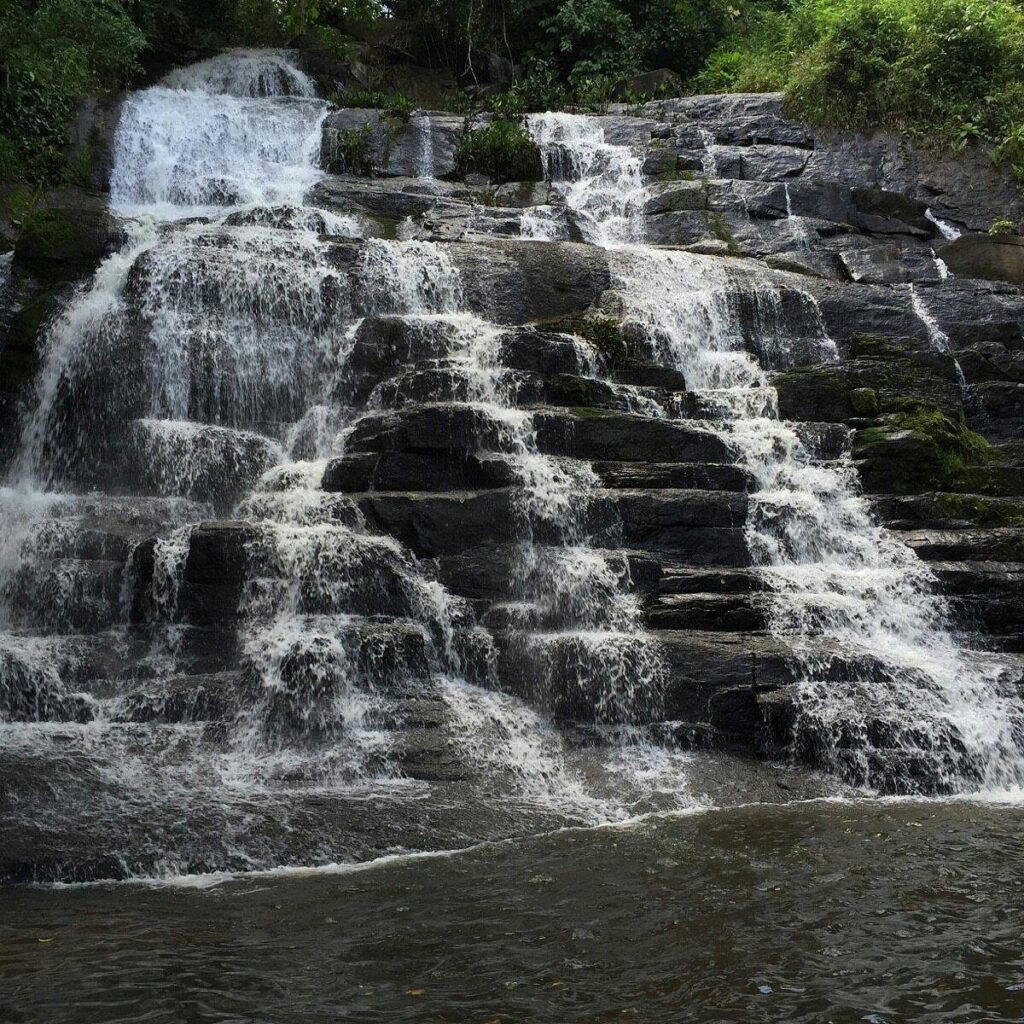
Man, located in the western part of Ivory Coast, is known for its beautiful landscapes, including the famous La Dent de Man (Man’s Tooth), a striking rock formation. The region is also famous for its waterfalls, such as the Cascade de Man, and the vibrant Dan cultural festivals, featuring traditional masks and dances.
- Highlights: Known for its stunning natural beauty, Man is famous for the nearby mountain range, Mount Tonkoui, which is the highest peak in Côte d’Ivoire. The area is known for its lush greenery, waterfalls (like Les Cascades de Man), and unique cultural practices of the local population, including the Guéré people.
6. Sassandra
Sassandra is a picturesque coastal town with stunning beaches and a relaxed atmosphere. It is perfect for those looking to unwind by the sea. The town also has historical significance, with remnants of colonial buildings and the Wharf of Sassandra, which offers beautiful views of the coastline.
Highlights: It is known for its picturesque beaches and fishing industry. Sassandra has a relaxed atmosphere and offers opportunities for fishing trips, boat tours along its waterways, and exploring nearby mangrove forests. The town also has colonial-era architecture, reflecting its historical significance.
7. Korhogo
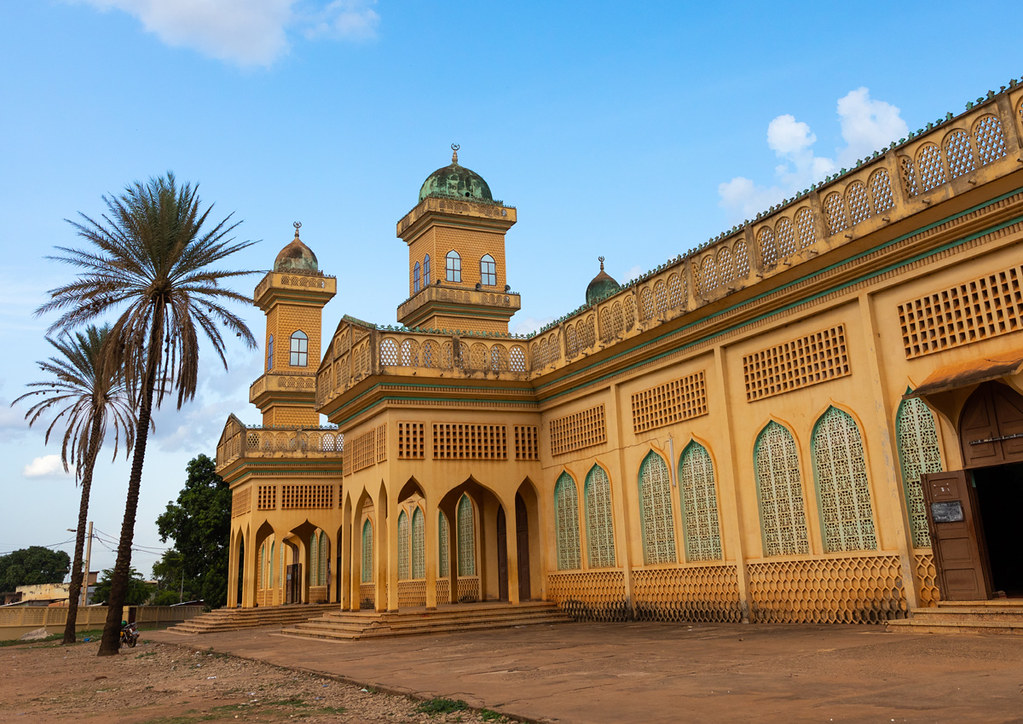
Korhogo, situated in the northern part of the country, is a cultural hub known for its traditional crafts and vibrant local culture. Visitors can explore the nearby Mount Korhogo, visit the artisan villages, and witness the unique Senufo wood carvings and textiles. The town is also known for its lively markets and traditional festivals.
- Highlights: Korhogo is known for its rich cultural heritage, particularly for its traditional crafts such as weaving and pottery. The area is predominantly inhabited by the Senufo people, known for their vibrant art and music. Korhogo features markets selling local crafts, and visitors can experience traditional Senufo ceremonies and dances.
8. Assinie
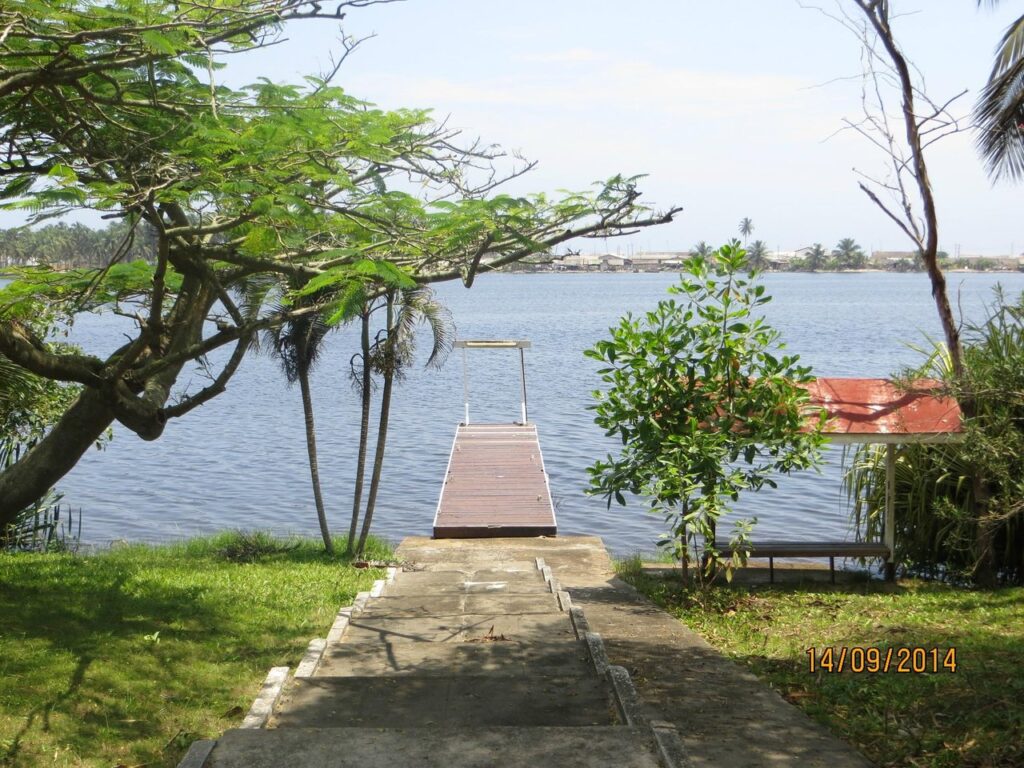
Assinie is a popular beach resort town located east of Abidjan. Known for its luxurious resorts and pristine beaches, it is a favorite getaway for locals and tourists alike. The lagoons and estuaries in the area offer opportunities for water sports, fishing, and boat tours, making it an ideal spot for relaxation and adventure.
Highlights: It is a popular resort destination known for its beautiful beaches and vibrant nightlife. Assinie offers opportunities for water sports such as surfing and jet skiing, as well as relaxing on the sandy shores. The area also has a range of restaurants and bars catering to tourists, making it a favorite getaway for both locals and international visitors.
9. Comoe National Park
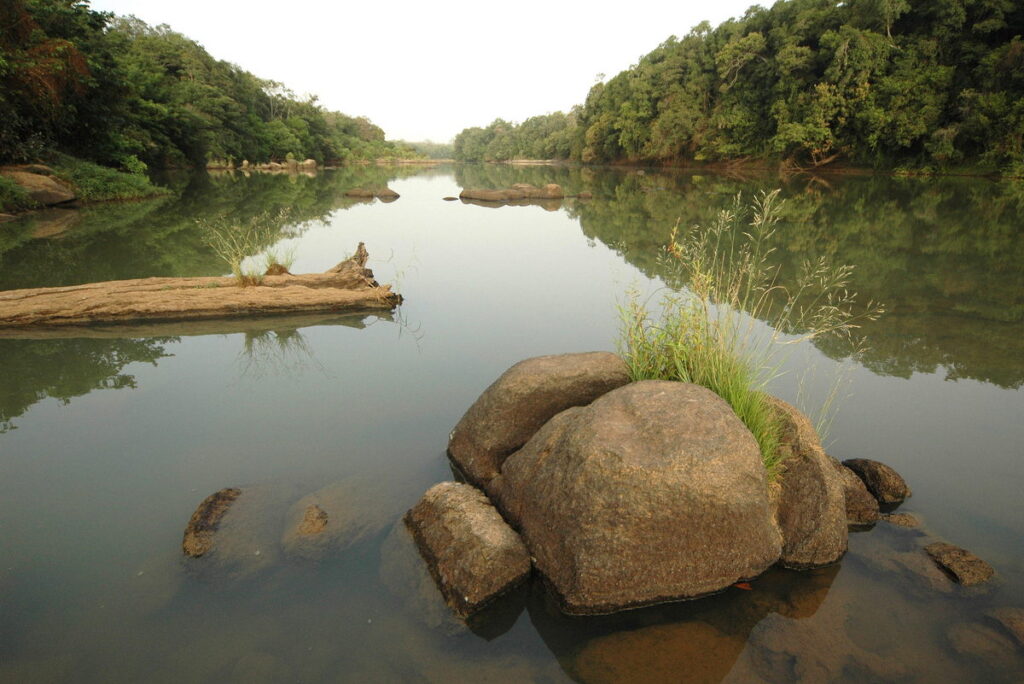
Comoe National Park is one of the largest protected areas in West Africa and a UNESCO World Heritage site. The park is known for its diverse ecosystems, including savannas, forests, and rivers. Wildlife enthusiasts can spot elephants, lions, and a variety of bird species. The park’s rivers are also home to hippos and crocodiles, offering a true safari experience.
Highlights: It is one of the largest protected areas in West Africa and is recognized as a UNESCO World Heritage site. Comoé National Park is known for its diverse wildlife, including elephants, lions, and antelopes. Visitors can enjoy guided safaris, birdwatching, and exploring the park’s varied landscapes, which include savannahs, forests, and rivers.
10. Bouaké
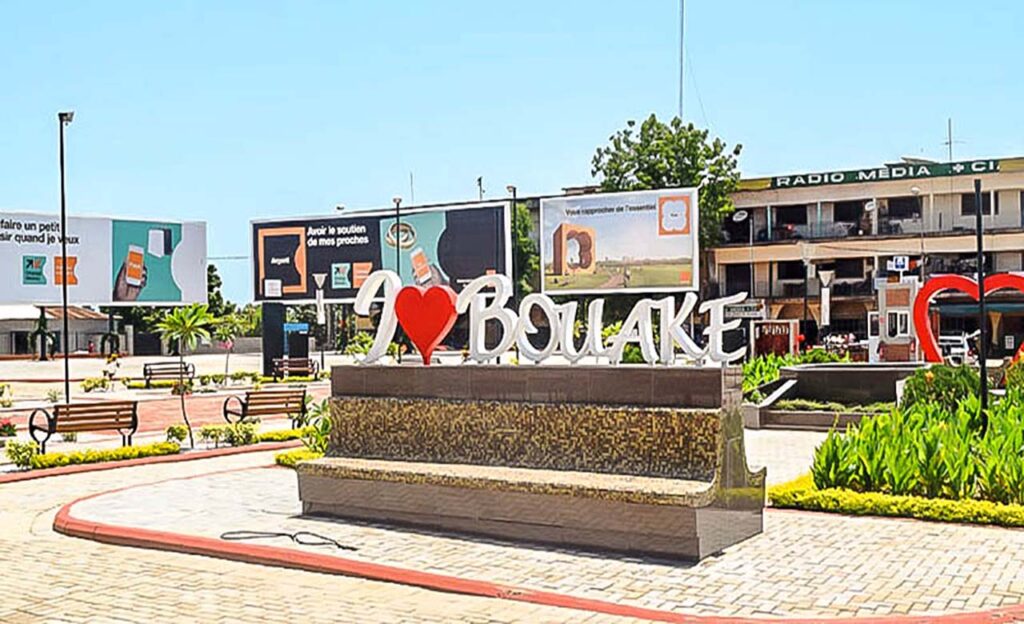
Bouaké is the second-largest city in Ivory Coast and a major cultural and economic center. The city is known for its vibrant markets, such as the Grand Marché, and its rich cultural heritage. Visitors can explore local crafts, textiles, and traditional foods. Bouaké also hosts the annual Fête des Masques, a colorful festival celebrating traditional Ivorian masks and dances.
Highlights: It is the second-largest city in the country and serves as a major cultural and economic hub. Bouaké has a bustling market scene, where visitors can shop for traditional crafts and local produce. The city also features historical sites such as the Museé de Bondoukou and the Great Mosque, showcasing its rich history and diverse cultural heritage.
Conclusion
Ivory Coast is a country of immense beauty and cultural diversity, offering a wide range of experiences for travelers. From the bustling streets of Abidjan to the serene landscapes of Tai National Park, each destination provides a unique glimpse into the heart of this West African nation. Whether you are seeking adventure, relaxation, or cultural enrichment, Ivory Coast has something to offer every visitor.




